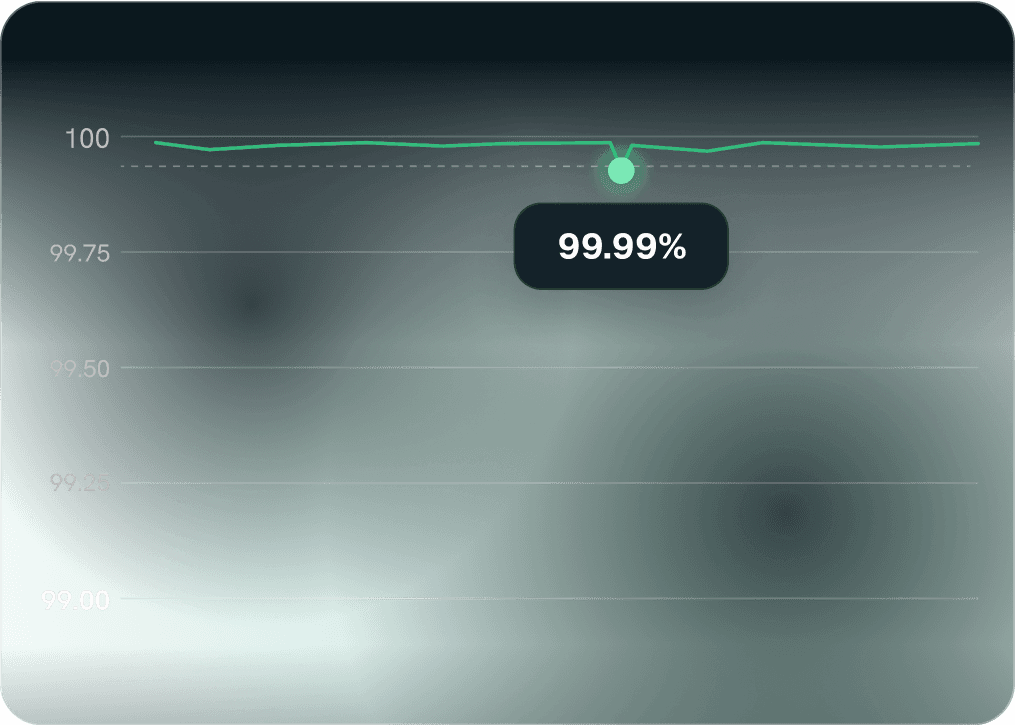The storage layer
purpose built for AI
Tigris storage scales infinitely, can be shared across any cloud, and provides instant access to all your data, all over the globe.
Trusted by























Fork buckets like you fork code
Instantly clone massive datasets for each experiment, job, or AI agent— copy-on-write, isolated, reproducible. Tigris brings Git-style workflows to data.
Learn moreBottomless, global-by-default storage
Unlimited, low-latency storage from anywhere. Dynamic Data Placement and Access-Based Rebalancing keep your data close to where it's needed — no replication or caching to manage.
Use your existing tools
Plug directly into AI frameworks and cloud tools with S3 compatibility. Train and serve models globally without re-architecting storage.
import { S3Client, PutObjectCommand } from "@aws-sdk/client-s3";
const client = new S3Client({
region: "auto",
endpoint: "https://t3.storage.dev",
});
// Upload a file
await client.send(new PutObjectCommand({
Bucket: "my-bucket",
Key: "my-file.txt",
Body: "Hello from Tigris!",
}));Predictable costs, even at AI scale
At AI scale, unpredictable egress fees can dwarf your storage costs. Tigris has zero egress fees — so your bill stays predictable no matter how much data you move. Store and access tables, vector embeddings, ML artifacts, and multi-modal AI pipelines without worrying about runaway costs.
Calculate your savingsFork buckets like you fork code
Instantly clone massive datasets for each experiment, job, or AI agent— copy-on-write, isolated, reproducible. Tigris brings Git-style workflows to data.
Learn moreTigris CLI
A fast, developer-friendly CLI to manage, move, and inspect data anywhere. Built for automation, scripting, and modern AI workflows.
Predictable data costs for training and inference
Eliminate data transfer costs across clouds, enabling AI companies to optimize GPU usage and lower their overall operational expenses.
Security and reliability
The same availability and durability guarantees as the big clouds, with live data to prove it — no filters, no spin. SOC2 certified.


Out of the box compatibility with






It's Easy to Get Going
Tigris SDK
Type-safe libraries for TypeScript and Go. Integrate object storage directly into your application logic with zero friction.
import { get, put } from '@tigrisdata/st…'
await get('my-file.jpg', 'file');
await put('object.txt', 'Hello, World!');
Tigris CLI
Manage buckets, keys, and global configurations from your terminal. Built for speed and scriptability in CI/CD pipelines.
~ t3 mk my-bucket
Bucket 'my-bucket' created
~ t3 touch my-bucket/key
Created 'my-bucket/key'
Zero downtime migration
Tigris Shadow Buckets eliminate migration risk by automatically syncing your new and old buckets for however long you need — no hard cutovers, no downtime.
View the Migration GuideUsage in numbers:
requests per day
buckets
of storage
objects
FAQs
Tigris is a modern object storage platform built for global performance, cost efficiency, and AI. It makes data instantly accessible worldwide, removes egress fees, and integrates seamlessly with tools you already use.
Choose Tigris when you need globally distributed storage for AI/ML workloads, want to eliminate egress fees, need S3 compatibility with existing tools, or require infinite scaling without capacity planning.
Tigris differentiates from traditional cloud storage with global-by-default distribution, zero egress fees, and purpose-built AI features like bucket forking. Unlike S3 or GCS, your data is automatically available worldwide.
Yes. Tigris is SOC2 Type II certified and provides the same availability guarantees as major cloud providers. All data is encrypted at rest and in transit.
There are no storage limits. Tigris scales infinitely — you can store as much data as you need without capacity planning or pre-provisioning.